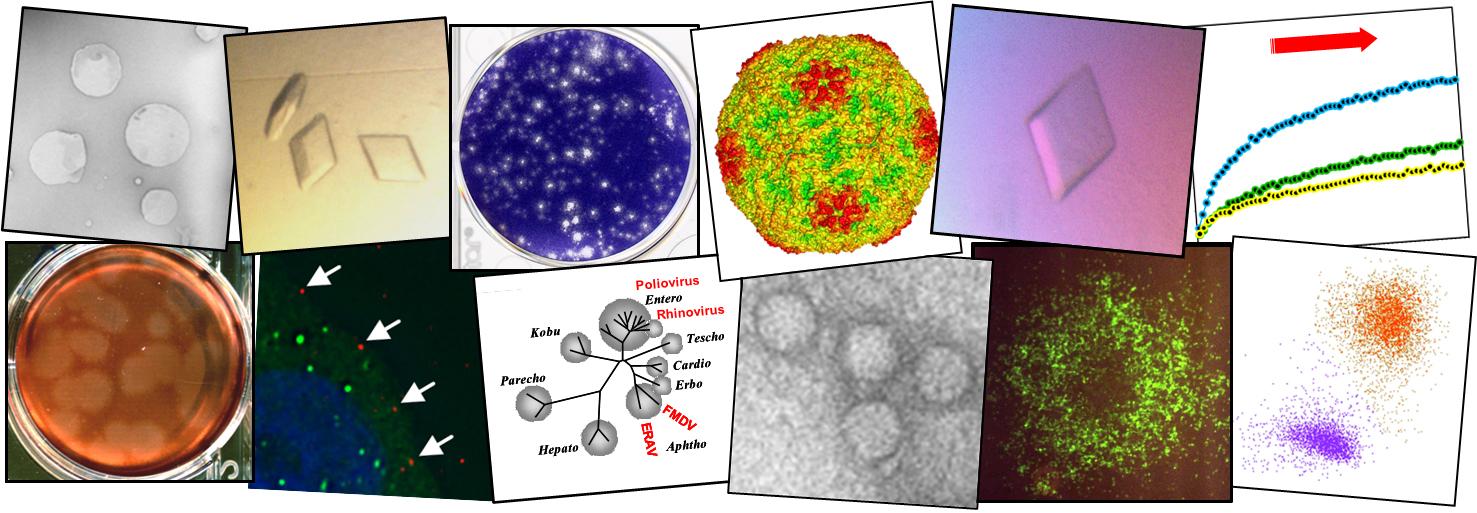Investigation of the role of protein kinase D in human rhinovirus replication
Picornavirus replication is known to cause extensive remodelling of Golgi and endoplasmic reticulum membranes and a number of the host proteins involved in the viral replication complex have been identified, including oxysterol binding protein (OSBP) and phosphatidylinositol 4-kinase III beta (PI4KB). Since both OSBP and PI4KB are substrates for protein kinase D (PKD) and PKD is known to be involved in the control of Golgi vesicular and lipid transport, we hypothesised that PKD played a role in viral replication. We present multiple lines of evidence in support of that hypothesis. Firstly, infection of HeLa cells with human rhinovirus (HRV) induced phosphorylation of PKD. Secondly, PKD inhibitors reduced HRV viral genome replication, protein expression and viral titres in a concentration dependent fashion and also blocked the replication of poliovirus (PV) and foot-and-mouth disease virus (FMDV) in a variety of cells. Thirdly, HRV replication was significantly reduced in HeLa cells overexpressing wild type and mutant forms of PKD1 and fourthly HRV genome replication was reduced in HAP1 cells in which the PKD1 gene was knocked out by CRISPR/Cas9. Although we have not identified the molecular mechanism through which PKD regulates viral replication our data suggests this is not due to enhanced interferon signalling nor inhibition of clathrin-mediated endocytosis and PKD inhibitors do not need to be present during viral uptake. Our data shows for the first time that targeting PKD with small molecules can inhibit replication of HRV, PV and FMDV and therefore, PKD may represent a novel anti-viral target for drug discovery. IMPORTANCE: Picornaviruses remain an important family of human and animal pathogens for which we have a very limited arsenal of anti-viral agents. HRV is the causative agent of the common cold, which in itself is a relatively trivial infection, however in asthma and chronic obstructive pulmonary disease (COPD) patients this virus is a major cause of exacerbations resulting in increased use of medication, worsening symptoms and frequently hospital admission. Thus, HRV represents a substantial healthcare and economic burden for which there are no approved therapies. We sought to identify a novel host target as a potential anti-HRV therapy. HRV infection induces phosphorylation of PKD and inhibitors of this kinase effectively block HRV replication at an early stage in the viral life cycle. Moreover, PKD inhibitors also block PV and FMDV replication. This is the first description that PKD may represent a target for anti-viral drug discovery.

